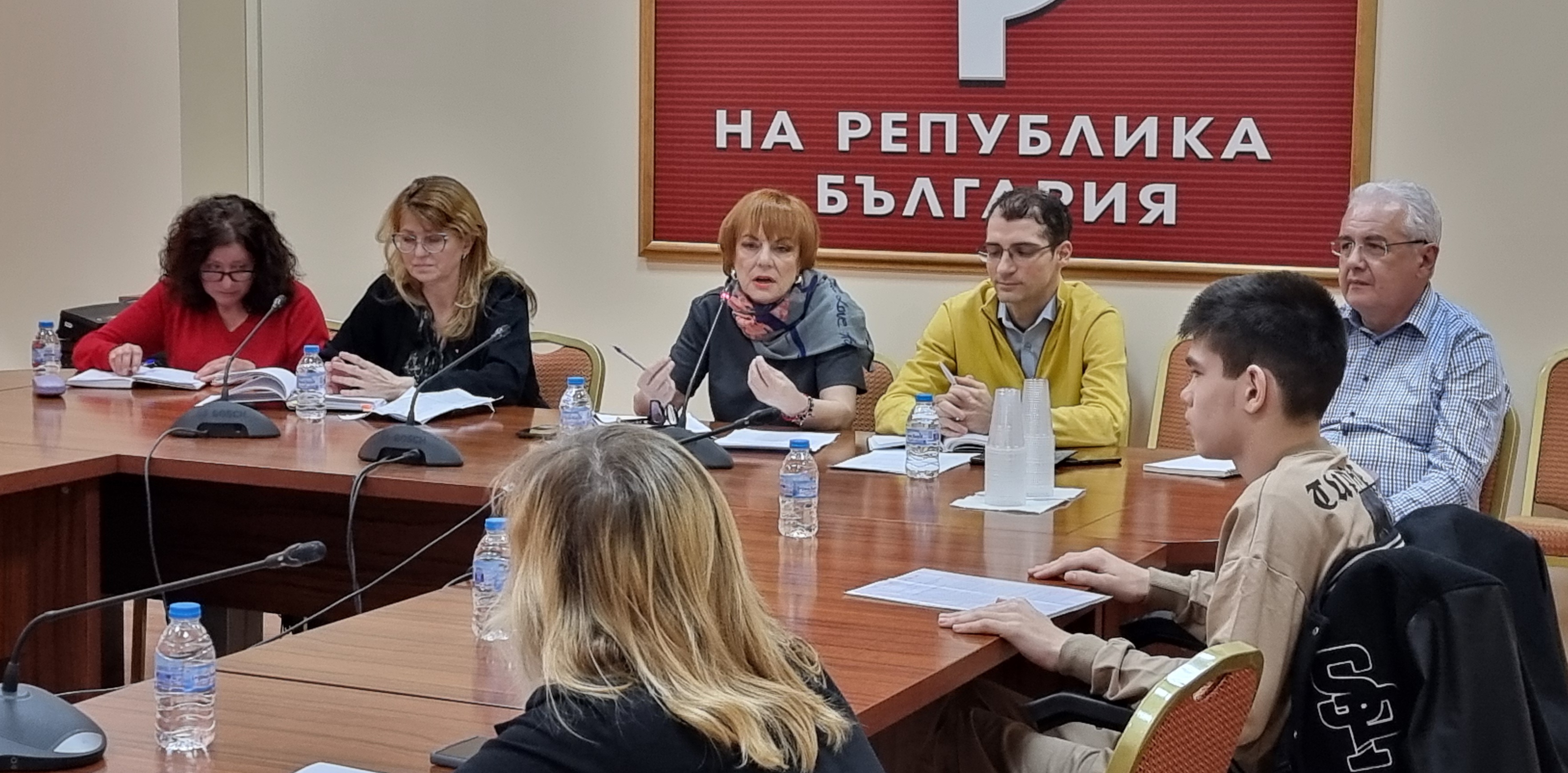News
At a meeting in Ombudsman Institution: Young people with disabilities foresee for friendly accessible environment in Bulgaria in 170 years from now

24 March 2025
The unfriendly inaccessible architectural setting, especially in schools and universities in Bulgaria, the absence of elevators and toilet rooms for people with disabilities, the inability to practice a sport in adequately designed gyms, shortage of money under the National Program “To Ensure a Modern, Safe and Accessible Educational Environment” – this was discussed at a meeting with experts of the Ombudsman Institution by young people from the association Spina-Bifida and Hydrocephalus-Bulgaria. The young people emphasized that the budget of BGN 900,000 and the scope of the program of only 14 projects per year are extremely insufficient for 2,300 schools across the country. They insisted that the Ombudsman intervene with the Ministry of Education and the Ministry of Finance to increase that sum, which would reach more schools, because as their estimations show “if we move at this pace, in 170 years from now Bulgaria will have an accessible architectural environment in the education system.” The young people were firm that it is worrying that in the 21st century and in a country in Europe, the is a requirement for a school to have at least one student with bodily incapacitation in order to apply for this program, because an accessible environment is a right of everyone, and moreover, children and students with locomotor impairments must have equal access to education.
Another issue discussed at the meeting was healthcare for people with disabilities and, in particular, the BGN 72 that the National Health Insurance Fund grants to people with spina bifida for intermittent catheters. These catheters are extremely scarce as they cover only the most basic catheters that are difficult to use and have not been used in many European countries for years. This compels patients who need better quality and safer lubricated catheters to pay up to 80% extra, which puts a serious risk to their health. Therefore, they insist that the Ombudsman should ask the Ministry of Health and the NHIF to give a timely and transparent consideration of the proposal to increase the ceiling.
The themes of the discussion included the employment of people with disabilities. After graduation from school, many of them encounter serious difficulties to find an internship and subsequent employment on the labor market, which limits their social and economic inclusion. Therefore, they suggest that a national online platform for career guidance and internships for university students with disabilities be installed and coordinated by the Employment Agency and the Ministry of Education and Science.
The idea is for this platform to provide individual support by career guidance, distance learning opportunities and contacts with employers who can announce internship positions and receive guidance on the adjustment of the work environment by, inter alia, the commitment of businesses to support young people with disabilities.


